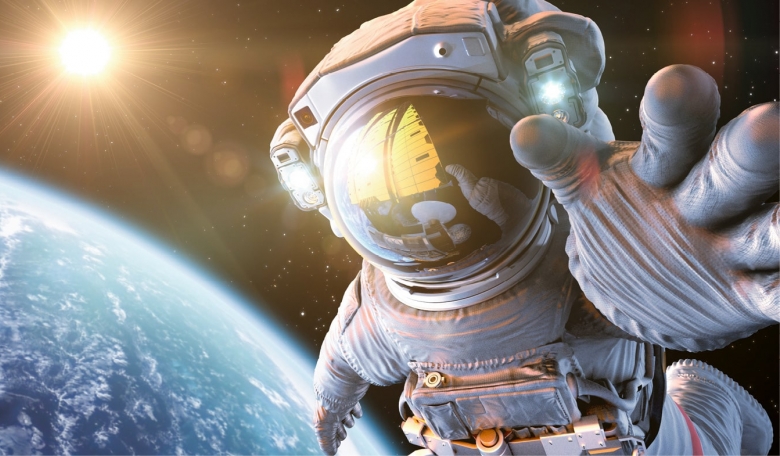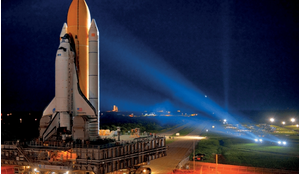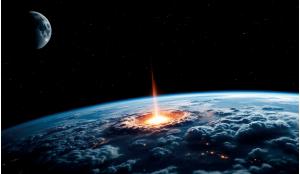Research coming out of the pandemic points to some similarities between issues created by the lockdown restrictions and those faced by spaceflight participants. The impact of those restrictions has become increasingly pronounced as time has gone on. This raises the question of whether humanity could truly become spacefaring and eventually settle on another celestial body, given the impact that restrictions have had upon on individuals.
The Covid-19 pandemic has seen a global crisis the likes of which we had not experienced for generations. The initial onset of lockdown posed problems of confinement and led to astronauts advising governments and the public on how to cope with the resulting isolation. This was astute, given the abrupt and complete nature of the disruption. The measures necessary to negate space’s innately dangerous environment parallel the experience of the Covid-19 pandemic, because the inherent level of risk is consistently on the cusp of rising and escalating rapidly.
The environmental variables of the socio-psychological impact of the Covid-19 pandemic parallel several issues identifiable within long duration spaceflight. The same conditions will create the same problems, as supported by data accumulated throughout the pandemic, studies of extreme, isolated and confined environments (identified by the acronym ICE) and anecdotal evidence from human space activity.
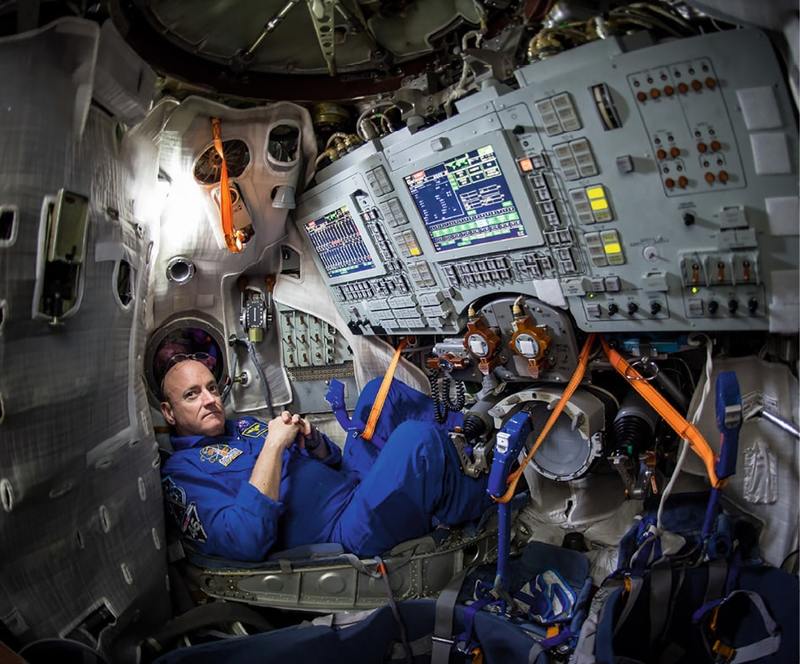 One of the things NASA astronaut Scott Kelly learned during his 340 days on the International Space Station was “to better compartmentalize, which doesn’t mean forgetting about feelings, but instead means focusing on the things I can control and ignoring what I can’t”.
One of the things NASA astronaut Scott Kelly learned during his 340 days on the International Space Station was “to better compartmentalize, which doesn’t mean forgetting about feelings, but instead means focusing on the things I can control and ignoring what I can’t”.
While the space industry continues to develop countermeasures against these influences, the sheer scale and breadth of the pandemic’s impact shows that for the entirety of a diverse society, existing frameworks have been unable to cope. This renders any adoption of pre-Covid measures to spaceflight ineffective.
This discussion will consider how data accumulated during the Covid-19 pandemic could assist in the development of long-distance space missions. Furthermore, the reality of spaceflight in echoing the conditions of the global Covid-19 lockdown experience should be recognised to dispel any misleading rhetoric about space exploration. It should also encourage a much-needed adjustment on the necessary timeframe for successful prolonged human presence.
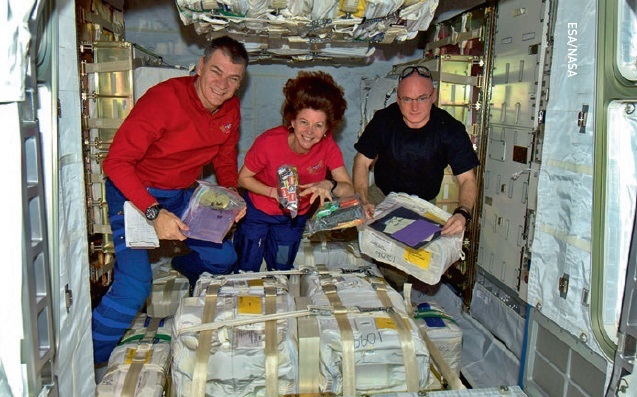 In addition to bringing food, fuel, air, spares, experiments and other vital material to the astronauts aboard the ISS, resupply ships also deliver crew care packages. The white, fabric duffle bags, eagerly anticipated by the crew, are sent from home or from the support staff and they contain about 5 kg of ‘goodies’ per crew member.
In addition to bringing food, fuel, air, spares, experiments and other vital material to the astronauts aboard the ISS, resupply ships also deliver crew care packages. The white, fabric duffle bags, eagerly anticipated by the crew, are sent from home or from the support staff and they contain about 5 kg of ‘goodies’ per crew member.
There are some important caveats that need to be drawn at the outset of the discussion. Thus far, spaceflight participants have been willing, and highly motivated individuals who have undergone a significant amount of training. Similarly, the idea of quarantine and isolation for protection against infection is one that is not new to human spaceflight. The early Apollo moon landers had to quarantine themselves before launch, to prevent infection ruining the mission and again upon return to prevent any harmful extra-terrestrial bacteria causing an Earthly endemic, echoing the need for self-isolation during Covid-19. The enforced, compulsory nature of lockdown stands as a sharp contrast since individuals were not given a choice about whether they wished to engage in that lifestyle.
A reassessment of both the desirability and conditioning needed for permanent extra-terrestrial settlement is necessary
It should also be noted that Covid restrictions were imposed relatively rapidly, without the preparation and training that long distance spaceflight participants undergo. This compares with the inherent nature of confinement which is part of the overall mission concept and the need for adaptation to the conditions of long-duration spaceflight which can take up to two months. It should also be noted that the issues discussed here are not unique to space exploration. There has been a significant amount of research conducted in the context of polar expeditions and the similarities with long-duration spaceflight. It is suggested here that the lessons learned from the pandemic also be included when considering the dangers posed by long distance spaceflight to humans.
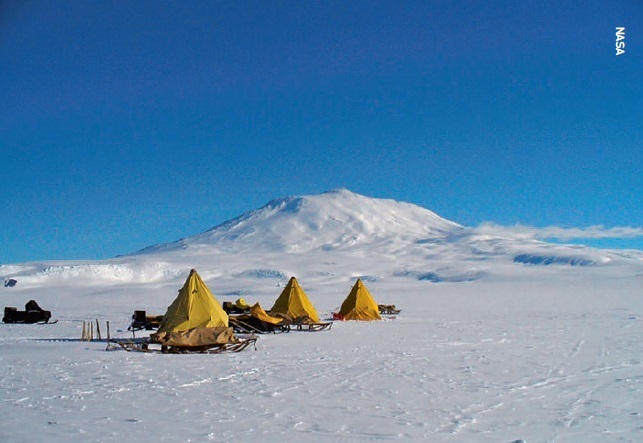 Training camp set up on the foothills of Mt Erebus near McMurdo Station in the Antarctic.
Training camp set up on the foothills of Mt Erebus near McMurdo Station in the Antarctic.
I would like to suggest, however, that lessons can be learned for long-duration space travel from the lockdowns resulting from Covid. Outer space, as has been noted by science journalist and space historian Andrew Chaikin, is “a place of such unrelenting sameness”. Despite the exciting imagery conjured by popular culture, it is hardly a stimulating environment to exist in. There are undoubtedly similarities endured by us all during lockdown.
Restrictions imposed due to Covid-19 have highlighted the increased psycho-social pressures that occur in small, isolated groups due to a lack of environmental variety. In their paper, ‘Microcosmic Getaways Aboard Space Habitats’ researchers Susmita Mohanty and Barbara Imhof found that beyond this, time fatigue, loss of motivation, depression, anxiety, and stress only worsens as space mission duration increases. They highlighted the importance of what they called “microcosmic getaways” - stimulus spaces, artefacts, or imaginary worlds - which would lead to positive physiological or psychological activity and responses from crewmembers.
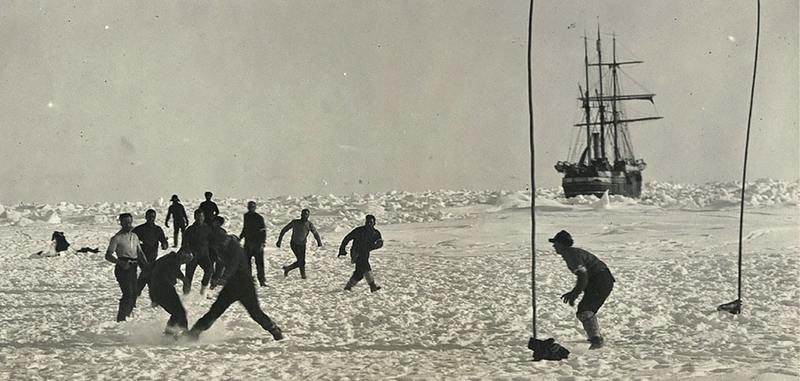 Ernest Shackleton and the crew of the Endurance faced months of isolation, risk, and uncertainty after their ship became trapped in pack ice in 1915. A strict routine and diversions such as football games, sprightly tunes from a banjo and a vision of success all helped to keep morale high. A team of researchers recently found the intact remains of the Endurance at a depth of 3,008 m on the Antarctic sea floor.
Ernest Shackleton and the crew of the Endurance faced months of isolation, risk, and uncertainty after their ship became trapped in pack ice in 1915. A strict routine and diversions such as football games, sprightly tunes from a banjo and a vision of success all helped to keep morale high. A team of researchers recently found the intact remains of the Endurance at a depth of 3,008 m on the Antarctic sea floor.
Diet and open spaces
During the pandemic, research suggested that the lockdown restrictions were leading increasingly to widespread feelings of isolation. There were numerous ideas posed to counter the symptoms of isolation, such as varying diet, routine, and taking advantage of permitted exercise windows.
Such activities are not available to long distance space travellers. Indeed, one of the key trends in Europe and the USA was a significant increase in home shopping and specifically DIY products to improve home habitability. Increased creativity in respect of diet, and a renaissance in home baking changed consumption patterns, even briefly contributing to scarcity of ingredients.
While nutrition is the guiding standard, cooking has also been a critical aspect of mission planning for astronauts, who have been sent into space with specially prepared cuisine. They have also reported their culinary experiments with the everyday resources available from their supplies, because unlike the exemption of grocery stores as an essential store to stay open during the pandemic, this will not be possible in space. In the words of the International Space Station’s Food Scientist and Technology Analysis Manager, Dr Ryan Dowdy ‘there’s no grocery store….you[‘ve] got to make do with what’s there’, making the grocery shops that remained vitally open at the height of restrictions, a luxury spaceflight participants will have to forego. The scarcity encountered during the pandemic was due to panic buying and stockpiling resources rather than genuine scarcity. By contrast, any lack of resources on a spacecraft will be caused by supply logistics across the vast distances between Earth and space and the inherent communication delay.
One of the key lessons from the pandemic is the growing importance of access to green spaces, for exercise and mental wellbeing after the restriction on physical movement. This was highlighted by the difficulties experienced by those suffering from ‘green poverty’, whose living environment or physical conditions left them unable to access gardens, balconies or green spaces for exercise and to support their mental health during periods of lockdown.
The idea of quarantine and isolation for protection against infection is one that is not new to human spaceflight
Being in space means being entirely bereft of any familiar ‘greenery’ and can increase sensations of isolation, as has already been recognised by experienced astronauts. Paired with the general inability to vary routine significantly, these issues demonstrate why a reassessment of both the desirability and conditioning needed for permanent extra-terrestrial settlement is necessary. The need for resources and activities that enable connection to the familiar and the valued, especially since all resources must also be transported into outer space, is imperative, as illustrated by the regular deliveries to the International Space Station [ISS]. It would also be an issue with any celestial settlement until the necessary self-sustaining environmental infrastructure could be installed. This demonstrates just how much the necessity of access has become more apparent by its absence.
Isolation and privacy
It is not only the pandemic that has highlighted issues in spaceflight. There are also lessons from long duration space missions and simulations that could have assisted during lockdown. The struggle to maintain privacy when living and working in the same space constantly has already been established to increase interpersonal conflict. The inter-group tension and conflict recorded during SFINCSS-99, a long-term spaceflight simulation from 1999-2000, illustrates the dangers of protracted isolation and lack of privacy. Conflict is a part of human existence and both polar exploration and human space activity have demonstrated that long duration missions of exploration are no exception, even when underpinned with training.
Domestic abuse helplines reported surges in calls during lockdown. The interpersonal conflicts and psycho-social issues that have emerged due to the pandemic are already well recognised within the space sector and this knowledge could have been used to try to predict and counteract the significant rise in domestic violence during the similarities of lockdown. The requirements of restricted movement, social-distancing and the strain on medical services saw a significant reduction in access to support services, particularly safe shelter accommodation. The lessons learned during the 1999 simulation could have provided some warnings for governments to bolster support for the vulnerable.
Perhaps one of the most important lessons learned throughout the pandemic was the need experienced by everyone, to engage with their social circle, their families, and friends. The importance of social connection has long been recognised in isolated, confined environments.
NASA attempts to manage this with regular Earth contact and crew care packages, intended to help make space feel a bit more like home. During the SFINCSS-99 simulation, one participant recounted her great appreciation for the extended phone call she had with her husband who was outside, due to a peer donating his allotted time to her. Despite the promise of communications technology, during the pandemic people experienced what became known as ‘Zoom fatigue’, discovering that video communications could only go so far in replicating the experience of being with loved ones and connecting with others. This is an important aspect that certainly requires deeper consideration by those planning long-duration space missions.
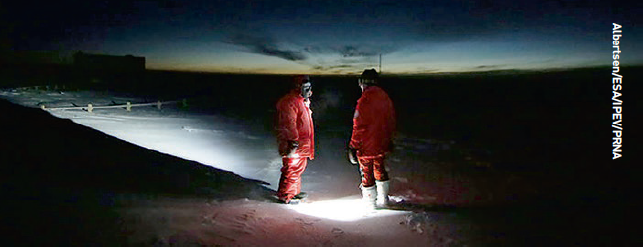 Two of the Concordia winter crew outside their base where temperatures can reach as low as minus 80C in the depths of winter
Two of the Concordia winter crew outside their base where temperatures can reach as low as minus 80C in the depths of winter
Learning lessons
Covid restrictions were imposed relatively rapidly, without the preparation and training that long distance spaceflight participants undergo
The pandemic saw individual rights being restricted because of wider threats to public health and safety. These types of measures are inevitable when considering long-distance human spaceflight. Participants will have to become reconciled to restrictions that possibly exceed those endured during lockdown, in addition to the lack of green spaces and physical contact with family.
Current long-duration spaceflight on the ISS is built around a clear chain of command including a code of conduct which requires astronauts to comply with all orders, particularly those related to safety, health, well-being, and security. Here on Earth, popular frustration with the way in which public bodies have infringed on individual liberties while acting to protect public health illustrates that a significant number of humans are simply not ready for the reality of daily life in outer space. It is important to disabuse popular misconceptions about what long-duration spaceflight entails.
This may be one of the enduring lessons to come from the Covid-19 pandemic. The strains encountered throughout lockdown clearly echo those detected in extra-terrestrial and polar conditions. These parallels should serve to emphasise the importance of resilience factors and support measures when planning a long duration mission. It must, however, also be considered that the combination of individual resilience and remote access support systems will not protect people from the very real mental health challenges faced by long-distance space travellers.
The space industry should study success rates of initiatives set up to counter the pandemic’s impact and incorporate them into its future industrial development as one of a range of measures to prepare humans for these unprecedented voyages. Without such alterations, it is unlikely that humanity will successfully travel into outer space, particularly for long-duration spaceflight or permanent settlement, let alone thrive there.
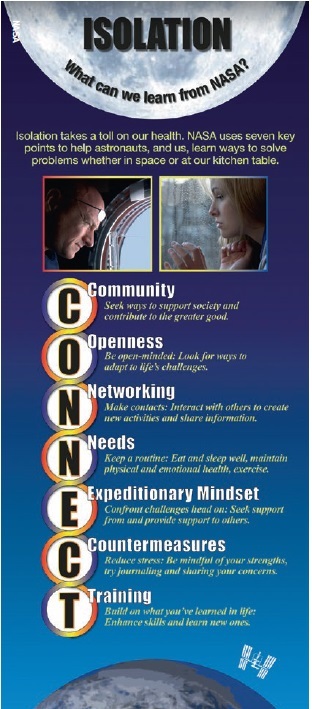
About the author
Alex Taylor is a PhD candidate at Northumbria Law School within Northumbria University. Her research investigates the development of a framework for criminal justice in space with a focus on embedding responsible research ethics within long-duration space flight. She has a background in international law and politics, having obtained a Master’s in international law from Newcastle University. She is interested in the transitional nature of law in space, criminal justice, transhumanism and cultural preservation.





